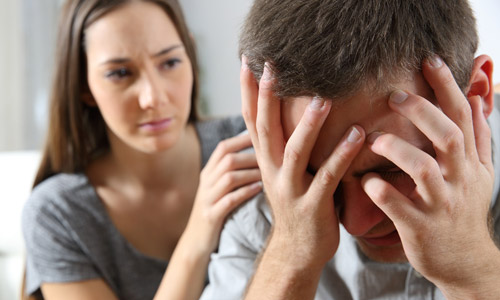Gambling Anxiety And Depression
'Research has linked telling lies to an increased risk of cancer, increased risk of obesity, anxiety, depression, addiction, gambling, poor work satisfaction, and poor relationships,” says. Another potential connection is that gambling itself could come before depression. The addictive nature of gambling can effect healthy brains and trap them just the same. A person who is perfectly happy could find themselves stuck putting more resources into gambling and create a stress inducing situation in their life. This finding is a confirmation of past studies that have established the relationship between anxiety and depression and problematic gambling (Barrault et al. 2017; El-Guebaly et al. Among Ontarians who had gambled online, high-risk gambling was even more strongly tied to severe forms of anxiety and depression, financial disruption, co.

Most people, whether they have a problem with gambling or not, can relate to the idea that people get excited when they win, and feel disappointed when they lose.
Beyond the initial feelings of sadness from losing, when someone has a gambling problem they may feel depressed, as well as perhaps experiencing feelings of shame and guilt.

Signs of depression may include:
- Increased irritability and frustration
- Loss of interest in activities and friends
- Feeling tired and worthless
- Struggling to sleep or finding it difficult to get out of bed
- Loss of appetite
- Negative or hopeless thoughts
Most people experience some of these signs at different times in their lives but if you notice they are happening more often you may be feeling depressed.
Remember there are services available to help you with these feelings, you can speak to one of our counsellors who can help you find the right one, and it’s completely confidential, free and available 24/7.
How common is depression and gambling?

A recent study has found that people with a gambling problem were twice as likely to be depressed and 18 times more likely to experience severe psychological distress than people without a gambling problem.

Further to this, the connection between mood and gambling is not always one-way and being depressed may push someone towards gambling in the first place.
For example, feeling depressed, down or alone can place people at risk of developing or increasing their gambling problem:
- People may use gambling as a break or escape from negative feelings or situations
- Gambling may provide a 'pick me up' or a sense of feeling connected to other people.
Dealing with gambling and depression
It is really important to look at your gambling and mood when addressing the problem. This will help you decide what kind of supports and strategies you might want to consider using.
For example, if you gamble because you are lonely, it will be important to look at both the gambling and the loneliness when taking steps to get your control back.
A simple step
Increasing your activity level can be one simple way to help with your depression. It can boost your mood, give you a different focus, increase your sense of control, makes you feel less tired and can help you think more clearly.
Just as you would train before running a marathon for the first time, starting with small steps can be the key. For example:
- Make your bed – it gets you moving and a sense of achievement for completing an activity.
- Go for a walk, gradually increasing how far you go each day.
- Cook a recipe you haven’t tried before.
- Sign up for a regular activity, this could include:
o Dancing
o Cooking
o Fitness/Gym
o Men's shed
o Gardening
o Art Class
o Painting
o Knitting
o Woodwork
o Get a Pet
o Singing

Make sure it’s something you enjoy doing, or gives you a sense of satisfaction, this way you will look forward to it and be motivated to participate!
Next steps
Anxiety Symptoms
If you think depression is an issue for you, it is important to get help:
What Is Anxiety
- Speak to one of our counsellors. They will discuss some strategies with you and can also refer you to local services.
- Talk to someone who you trust and know will listen to your concerns.
- Visit your G.P. or a mental health professional. They can conduct an assessment and provide treatment and referral if appropriate.
- Seek support from others in our peer support forums